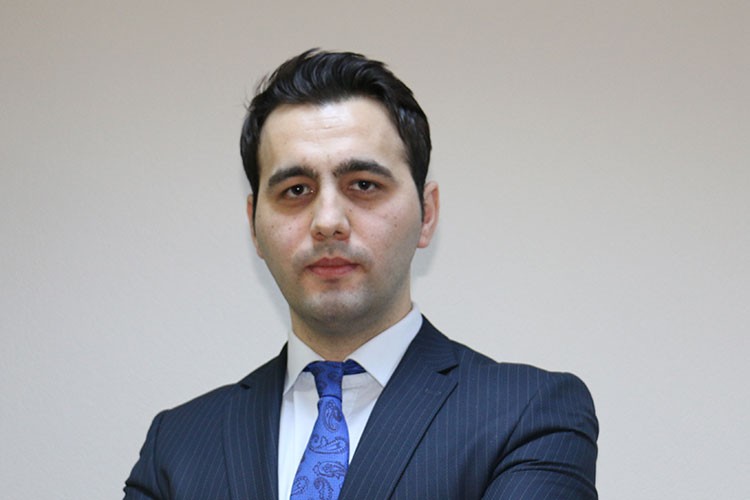
The International Monetary Fund Forecasts a Global Increase of Differences in Development between Countries
Head of Strategic Planning and Development Department
Center for Analysis of Economic Reforms and Communication
On July 27, 2021, the International Monetary Fund (IMF) updated the traditional World Economic Outlook on the future of the world economy. The most significant in the recent report is that economic prospects have diverged further across countries. In this regard, access to vaccines has become an important factor influencing both the economic development of countries and the state of health. However, despite the decline in the number of coronavirus infections in some countries, the chances of a global economic recovery do not appear to be stable or predictable.
Although the IMF forecasts that the world economy will grow 6 percent in 2021 and 4.9 percent in 2022, prospects for developing economies have been marked down. Global trade volumes are projected to expand 9.7 percent in 2021, moderating to 7.0 percent in 2022. The interesting point is that despite a decrease in economic growth indicators, it is expected that world trade volume in developing countries will increase by 11.1 and 6.9 percent in 2021 and 2022 correspondingly, which is 2.8 and 0.2 percent higher than previous forecasts.
Another significant outcome from the analysis of the report is that high food prices will trigger inflation in developing countries. Thus, while inflation indicators for developed countries are forecasted as 2.4 percent in 2021, for developing economies this figure is 5.4 percent. Inflation is expected to return to its pre-pandemic ranges in 2022. To avoid high inflation trends, the IMF recommends Central Banks to implement a clear communication policy to manage economic expectations effectively and take measures to prevent import inflation.
Another significant issue reflected in the report is that despite 40 percent of the population in advanced economies has been fully vaccinated, in developing economies this figure is 20 percent. It should be noted that at the moment, 2 million 686 thousand 492 people in Azerbaijan received the first dose of the vaccine, and 1 million 945 thousand 857 people got the second dose, which indicates 26 and 19 percent of the vaccinated. Although the indicators are satisfactory in this context, in our opinion, the decisions on vaccination taken by the Operational Headquarters on July 26 are expected to further increase vaccination rates.
For developing the global economy, the IMF also calls on countries to carry out multilateral actions along with national sustainable and inclusive anti-pandemic policies.
In this context, particularly to ensure that limited access to essential vaccines and medical supplies for less developed countries does not impede future global economic renewal and disrupt economic growth, we can pay attention to the steps taken by Azerbaijan. It should be noted that as the Chairman of the Non-Aligned Movement, Azerbaijan has launched a number of international initiatives to mobilize global efforts against the pandemic. Azerbaijan initiated the organization of the Summit-level Meeting of the Non-Aligned Movement Contact Group that took place on May 4, 2020. The practical outcome of the Summit was the creation of a database covering the basic humanitarian and medical needs of the member countries of the, which is still used by the World Health Organization as a reference source. At the same time, upon the initiative of Azerbaijan, on December 3 and 4, 2020, there was held a Special Session supported by more than 150 UN member countries. Along with that, Azerbaijan has provided humanitarian and financial assistance to more than 30 countries in the fight against the pandemic and provided a voluntary financial contribution of 10 million US dollars to the World Health Organization. As we can see, Azerbaijan has shown sufficient leadership and global initiative in response to calls of international organizations for future economic development.
The analysis of the report demonstrates that the policy measures implemented within the framework of pandemic control measures and the sustainability of health care systems will lead to the improvement of economic development indicators of several countries by 2022. Also, it should be noted that in the first half of the current year, economic growth trends in Azerbaijan have turned positive with general economic growth reaching 2.1 percent and growth in the non-oil sector – 5.1 percent. Thus, it becomes obvious that support measures designed to achieve economic stability play a crucial role in economic recovery. Accordingly, the wide-scale measures taken by Azerbaijan in the fight against the pandemic further improve the future economic outlook.








Op-eds
Agil Asadov
Head of the Strategic planning division
"Azerbaijan-China Relations: Formation and Perspectives"
Isa Gasimov
Head of the “Enterprise Azerbaijan” portal
Social entrepreneurship is an important tool for economic sustainability
Vusala Jafarova
Head of the Turkic World Research Center
"Driving Economic Integration and Digital Transformation: Azerbaijan’s Strategic Leadership in the Organization of…
Vusala Jafarova
Head of the Turkic World Research Center
"Azerbaijan’s Admission to the D-8: Strengthening Economic Cooperation with Global Potential"
Vusala Jafarova
Head of the Turkic World Research Center
Turkic States Economic Outlook for the First Half of 2024: Growth, Trade, and Investment Trends
Agil Asadov
Head of the Strategic planning division
Moody's: Growing influence of the Middle Corridor boosts economic prospects
Vusala Jafarova
Head of the Turkic World Research Center
The Karabakh Declaration and the future of economic cooperation of the Turkic world